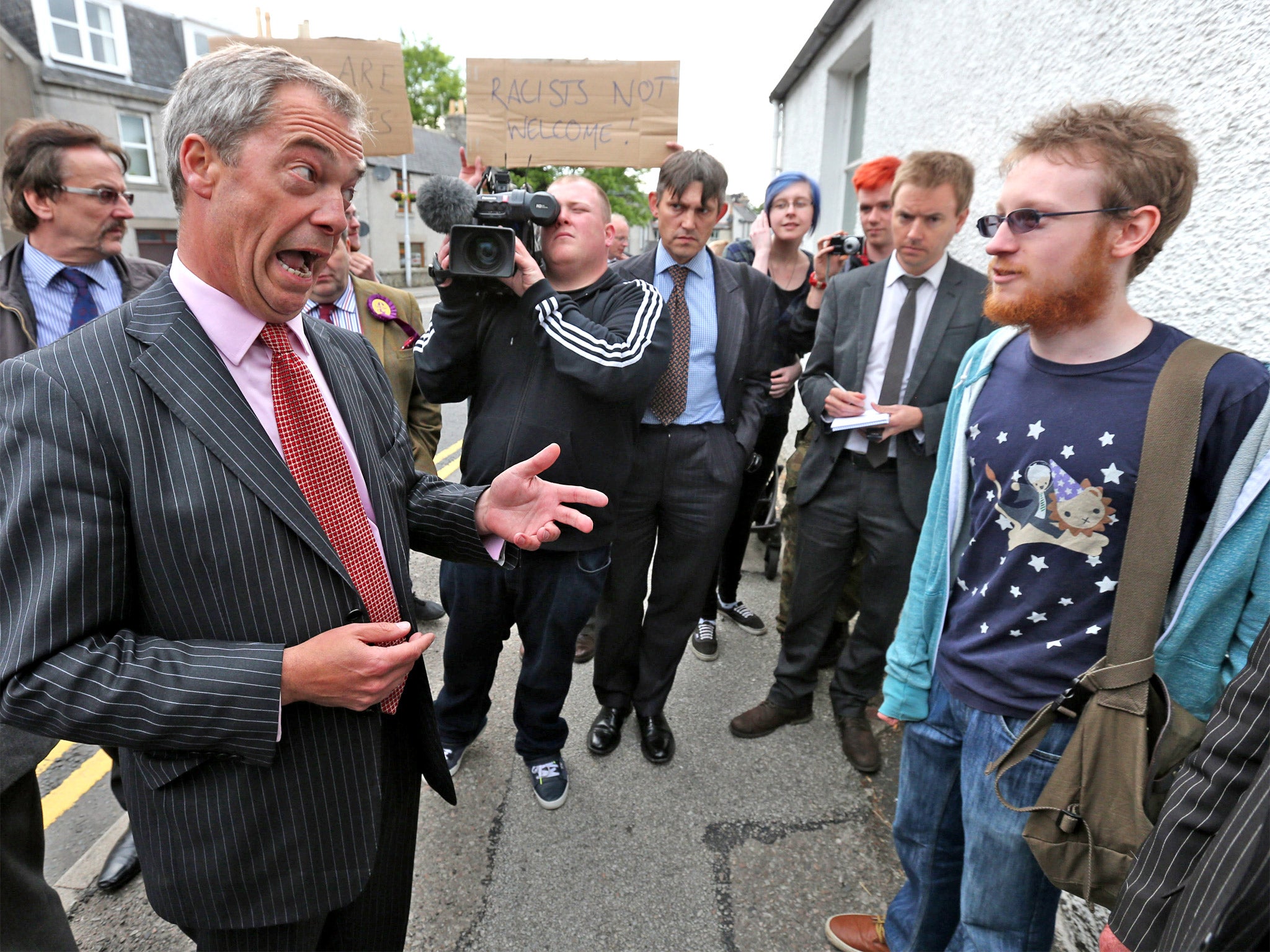If people don't articulate their views, how can a broadcaster be expected to represent them?
Why is the alternative to 'The Westminster Bubble' always the populism of a very engaged minority of citizens, rather than the equivocation of the majority of voters?

Your support helps us to tell the story
From reproductive rights to climate change to Big Tech, The Independent is on the ground when the story is developing. Whether it's investigating the financials of Elon Musk's pro-Trump PAC or producing our latest documentary, 'The A Word', which shines a light on the American women fighting for reproductive rights, we know how important it is to parse out the facts from the messaging.
At such a critical moment in US history, we need reporters on the ground. Your donation allows us to keep sending journalists to speak to both sides of the story.
The Independent is trusted by Americans across the entire political spectrum. And unlike many other quality news outlets, we choose not to lock Americans out of our reporting and analysis with paywalls. We believe quality journalism should be available to everyone, paid for by those who can afford it.
Your support makes all the difference.It seems that the BBC has a liberal bias as the media gobbets fly from The Prebble Report into BBC impartiality. The report itself is more equivocal and for advocates of populist politics, the opportunity to fulminate has been too good to miss.
Nigel Farage, the Ukip leader, said: “The BBC are in a state of denial, they don’t even realise they are being biased. They come from the same, metropolitan mindset and are out of touch with the public mood.”
Even the BBC’s own Helen Boaden told the review that the Corporation had failed to take anti-immigration lobby groups seriously enough as eastern European immigrant numbers started to spike in 2004.
One important question was left unasked, however. Is a louder, less complicated line of Euroscepticism and anti-immigration the only alternative to Westminster orthodoxy? Is it really the case that calling oneself a member of the ‘silent majority’ proof that you really belong to that group?
The BBC may have overlooked the views of some sections of the population, but are they really those views that are widely expressed in tabloid editorials, MPs mailbags and by panellists on Question Time?
It’s far more likely that the viewpoints that are least represented are those of the true silent majority – those people who don’t write to Editors or MPs, watch political panel shows or take part in consultations or demonstrations?
There are many people who lack the certainty or passion to make their points effectively. Some don’t have the opportunity because of other commitments; a woman working a nightshift and caring for an elderly relative, for example, or a man trying urgently to re-calibrate his work skills and avoid obsolescence. They will rarely be in a position to bellow political convictions.
Yet these people far outnumber the vociferous minority. And if so, it begs the question: If people won’t articulate their views, or interest others in them, how can a broadcaster be expected to tune in and amplify them?
Anthony Zacharzewski of The Democratic Society sees this as a problem that can be overcome with an updated route to participation.
“Of course people with mild preferences or with few opportunities to participate in politics are harder to involve, but there are plenty of ways that we can tune in to these voters. If we want to involve them in decision-making, we can create games or role-playing exercises. We can find the sort of budget that we’d need to be able to negotiate paid time-off work for a random representative sample that could make up a ‘citizens jury’ on key issues.”
More to the point, participation isn’t all about deciding outcomes. The maligned but blossoming lobbying industry is there to ensure that their clients are well represented when the description of a problem is being agreed.
Dr Andy Williamson, a consultant on digital engagement sees opportunity for harnessing help to ensure that democratic institutions can receive evidence from a wider circle than the current ‘Westminster bubble’:
“You can involve schools and pupils in the visualisation of local open data – remove the monopoly that pressure groups and activists have over the presentation of evidence. You can create collaborative authoring processes that can involve a lot of people who are only able to dip in very briefly to ensure that their evidence and issues are registering”
If the BBC wanted to set itself an impartiality challenge, there are numerous ways that it could start to engage with the mild preferences. That would surely be a very attractive challenge to a corporation that needs to clearly define what it means by impartiality for a baying critics section. More significantly, many people would welcome the reassurance of the BBC straightening its shoulders and once again stepping out as the trusted representative of the nation.
This is not just about fairness either. It’s about good governance. Do we really believe that political discourse, monopolised by shouty, simplistic rhetoric results in good policies? As Yeats put it in his ‘Second Coming’…
"The best lack all conviction, while the worst / Are full of passionate intensity"
Join our commenting forum
Join thought-provoking conversations, follow other Independent readers and see their replies
Comments